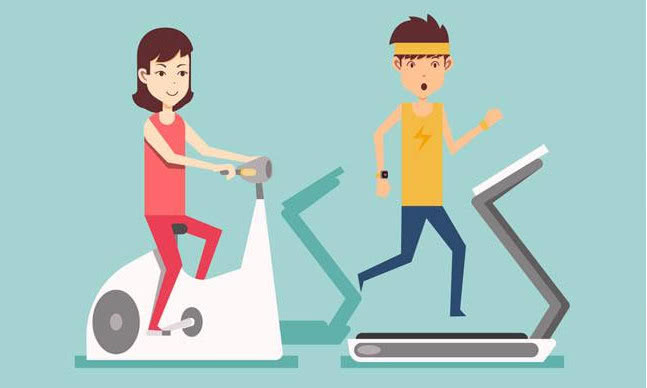Do you often feel anxious? Stressed out at work, having trouble with friends and colleagues, making lots of plans but not accomplishing much.
It seems that anxiety has become the norm in our lives.
According to research, young people are more likely to feel anxious, so what is it that makes young people anxious today? What constitutes an anxiety disorder?
Anxiety ≠ anxiety disorder
Anxiety and depression are some of the most common psychological problems today. First of all, let's be clear: feeling anxious does not mean that you have an anxiety disorder.
Anxiety disorders are different from general anxiety, in that the anxiety is not well-founded and is often inexplicable and persistent, with panic attacks or physical discomfort.
In layman's terms, people with anxiety often show a desire to do something and a fear of being punished, and also often show feelings of paranoia, where bad things don't happen but they can't help thinking about them in a bad way.

Manifestations of an anxiety attack
During an anxiety attack, symptoms such as dizziness, chest tightness, palpitations, breathlessness, dry mouth, frequent urination, urgency to urinate, sweating, tremors and motor restlessness may occur, but no actual threat can be found in the real state and the patient's level of nervousness and panic during the attack appears to be inconsistent with the reality of the situation.
Anxiety attacks are accompanied by feelings of somatic discomfort, psychomotor agitation and vegetative disturbances in addition to feelings of anxiety.
Somatic manifestations of anxiety disorders
Respiratory.
During an anxiety attack, there is a sudden sensation of rapid heartbeat, chest tightness, pressure, breathlessness, and in severe cases, even a near-death feeling of suffocation.
Urinary symptoms.
Some male patients may experience frequent urination, urgency and loss of libido.
Digestive system.
Reactions such as nausea and vomiting, bloating, indigestion, alternating diarrhoea-constipation may occur, as well as loss of appetite, dry mouth and unpleasant abdominal distention without being able to specify the exact site.
Cardiovascular system.
There is panic, palpitations, dizziness, blurred vision, increased heart rate, increased blood pressure and pulse disturbance; in severe cases, there is pain in the precordial region with pressure, etc. The symptoms usually last for several hours and no significant improvement is seen after taking the drug.
Nervous system.
Commonly there are headaches, mostly contraction or squeezing headaches caused by excessive muscle tension in the head, face, limbs, etc.
Muscular, skeletal system.
There is stiffness and pain in the neck, shoulders, lower back and back, and in severe cases tremors and convulsions.

Several manifestations of anxiety disorders
1. Excessive worry.
Showing excessive worry about the big and little things in life and often having unfounded worries is one of the symptoms of anxiety sufferers. If you are worried about your own health or your loved ones' property, for example, and if you worry more than four days a week for six months and it affects your life, then you should consider whether you have anxiety.
2. Inexplicable fears.
Fidgeting, restlessness, rubbing hands and feet, pacing around, making small movements and not knowing why they are so frightened. Some people are chronically fearful but have no specific object to fear, so this is anxiety.
3. Physical tension.
Anxiety sufferers often feel that they cannot relax, that their whole body is tense, and that they will suddenly realise that they have been double-browed, fist-clenched, teeth-clenched, and constantly tense in their muscles for a long period of time, signs that are often seen in anxiety sufferers.
4. Self-doubt.
The personality of anxiety sufferers is often characterised by a tendency to be nervous and anxious, over-estimation of difficulties, a sense of insecurity and low self-confidence.
5. Repeated confabulation.
When confronted with a trivial matter, they talk repeatedly with those around them and may show signs of anxiety.
6. Easily irritated.
Emotionally unstable and easily irritated, they may lash out at the slightest thing. Difficulty concentrating and sensitivity to sound and light. Patients feel that their memory is diminished because of their inability to concentrate.

Several ways to combat anxiety
Aerobic exercise to invigorate the mind.
Anxious people can speed up their heartboys, promote blood circulation and lift their spirits through aerobic exercise, such as brisk trotting, fast cycling, brisk walking and swimming.
Leisurely listening to music regularly to change the state of mind.
When using music to get rid of psychological difficulties, pay attention to choosing music that can match your mood at the time, and then gradually switch the music to be conducive to adjusting your mood to the aspect you wish to obtain.
Choose appropriate colours to nourish the body.
Using bright, lively colours that are pleasant to the mood and fresh colours that have a soothing, calming effect will allow your vision to be delighted by the right colours, producing a nourishing effect on the mind and making mental distress disappear without you realising it.

If you or someone close to you is experiencing these symptoms inexplicably, you need to be vigilant and seek professional psychiatric help promptly so as not to miss out on the best time to treat them.
Popular Articles
-
Ten largest peninsulas in the world

Photos
-
 Healthy Fruit Sevings in Spring Pineapple White Fungus Broth
Healthy Fruit Sevings in Spring Pineapple White Fungus BrothNov 22, 2024
-
 These 4 essential household cleaning goodies, not only save cleaning time, but also enhance the sense of well-being at home
These 4 essential household cleaning goodies, not only save cleaning time, but also enhance the sense of well-being at homeNov 22, 2024
-
 Treadmill PK elliptical machine, which is more fat burning?
Treadmill PK elliptical machine, which is more fat burning?Nov 22, 2024
-
 What are the considerations for fitness?
What are the considerations for fitness?Nov 22, 2024
-

Photos
The world's most beautiful big cities at nightNov 22, 2024







Comments
0